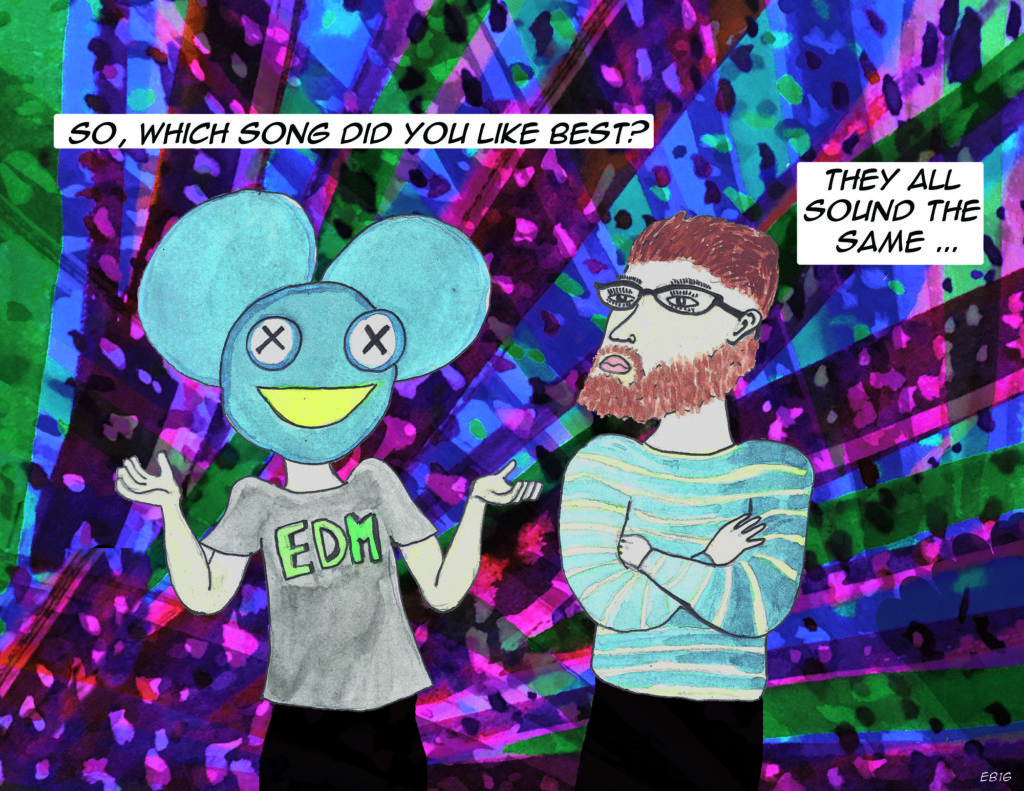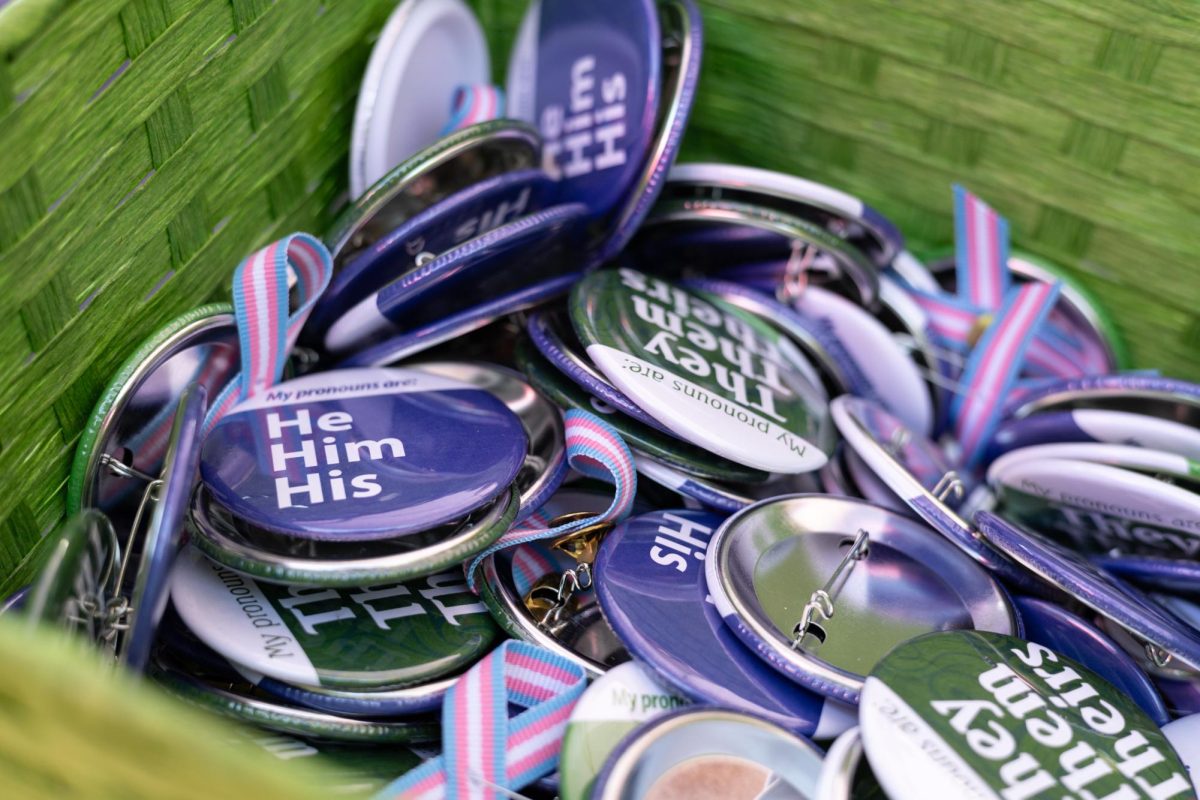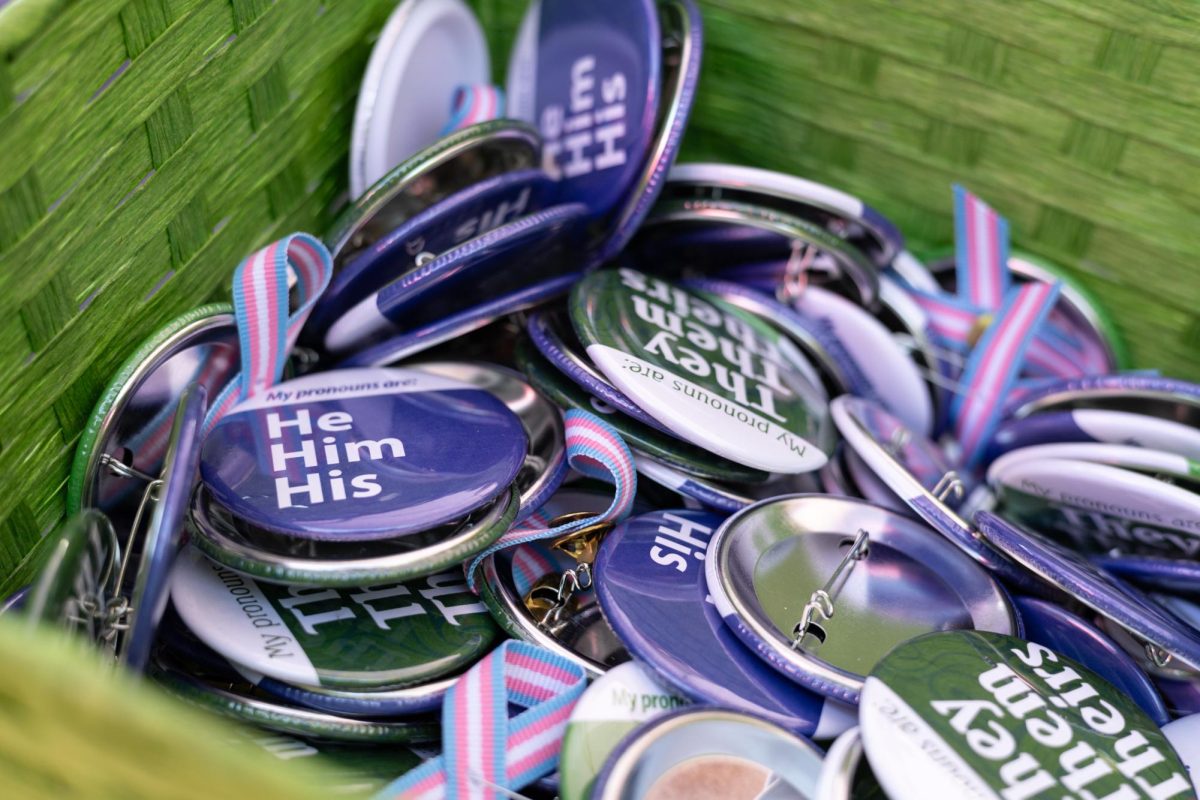
Music lovers have different criteria as to why they prefer a certain artist or genre. Some love the rhythm or tempo. Others are drawn to the lyrical content. But variety within any given genre is critical criteria for most fans, regardless of genre.
EDM, or electronic dance music, is heavily condemned by critics for its alleged lack of variety or artistic integrity. Nevertheless, EDM aficionados recognize an array of sub-genres: electronica, dubstep, house and techno, among many others.
Whether you’re at a rave or walking through H&M, EDM is ubiquitous in America.
EDM is characterized by its distinct formula of mixing synthetic sounds with fluctuating equalizer levels. Dubstep, for example, is recognizable by it’s characteristic heavy bass — or the oft-cited “wub wub wub.”
EDM artists and DJs take note of the genre’s criticisms. “I mean, EDM all sounds the same to me,” said Deadmau5, electronic music producer and performer, in an interview with Australian music site inthemix. “But with techno — minimal techno, or heavy techno, or neo-progressive techno — it’s
all techno!”
Recently renown artists like Deadmau5, Skrillex and Diplo are contemporary frontrunners of electronic music, but the genre itself, in one incarnation or another, has been around for decades.
Several relevant musicians began their EDM journey in the early 1990’s. Artists like Beck, The Chemical Brothers and Moby have been using electronically manufactured sounds in their music for decades now. But even they are critical of the music genre today.
“We played in America recently, and every record sounded like Benny Benassi,” says Ed Simons of The Chemical Brothers in an interview with The Guardian. “I know that sounds like your dad … saying it all sounds the same, but it did all sound the same.”
While Deadmau5 remains critical of the genre, he gives his best explanation as to why so many artists and DJ’s adhere to similar sounds
in EDM.
“I don’t think enough EDM artists are taking risks right now, and that’s the big problem,” he explained in a CP24 interview. “Everyone wants to be safe and do that thing you know is going to work.”







